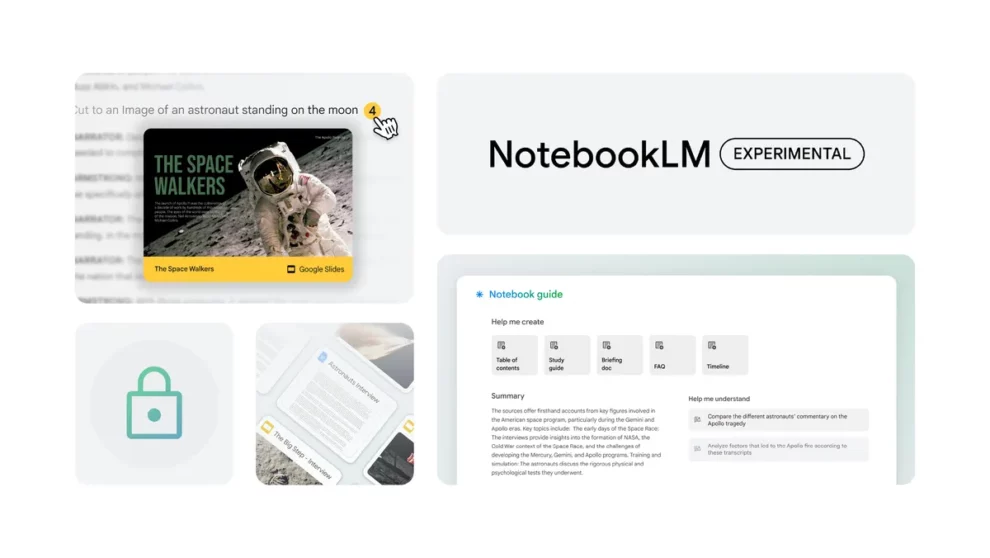Google has significantly expanded its NotebookLM note-taking application with groundbreaking interactive capabilities, allowing users to engage in conversations with AI-powered podcast hosts. This latest development builds upon the app’s Audio Overviews feature, which was introduced earlier this year and has already generated more than 350 years’ worth of content since its September launch.
The enhanced functionality transforms NotebookLM from a simple note-taking tool into an interactive learning platform, effectively creating a personalized tutoring experience based on users’ uploaded documents. Whether working with course materials, legal briefs, or other complex documents, users can now engage in dynamic conversations with AI hosts to deepen their understanding of the content.
This innovative approach to information processing represents a significant step forward in educational technology. The system works by first creating an AI-generated podcast based on uploaded documents, then enabling users to interrupt and interact with the virtual hosts at any point during playback. Users can seek clarification, request alternative explanations, or delve deeper into specific concepts, mimicking the natural flow of conversation with a knowledgeable tutor.

To access this new feature, users need to initiate a new Audio Overview and activate the “Interactive mode (BETA)” option before starting playback. The interface includes a “Join” button that users can tap whenever they wish to pose a question, creating a seamless interaction between user and AI host.
However, Google maintains transparency about the experimental nature of this technology. The company acknowledges that the system may experience occasional awkward pauses before responding and could sometimes provide inaccurate information. These limitations highlight the ongoing development nature of the technology while setting realistic expectations for users.
The release coincides with a comprehensive redesign of the NotebookLM platform, introducing a more streamlined organization of tools across three main panels: Sources, Chat, and Studio. This restructuring aims to improve user experience and workflow efficiency, making the platform more intuitive and accessible.
In a strategic move to expand its market presence, Google is also launching NotebookLM Plus, a premium version tailored for enterprise users. This business-oriented offering includes additional features and benefits, though specific details about these enhancements remain under wraps.
The development of interactive AI hosts represents a significant evolution in how technology can facilitate learning and information processing. By creating a more engaging and conversational approach to studying complex materials, NotebookLM addresses one of the key challenges in digital education: maintaining user engagement while ensuring comprehensive understanding of the material.
The success of the Audio Overviews feature, as evidenced by its extensive usage since launch, suggests a strong user appetite for alternative ways to consume and process information. The addition of interactive capabilities could further revolutionize how people approach learning and information retention in both academic and professional contexts.
This advancement in AI-powered education technology comes at a time when digital learning tools are increasingly important in both educational and professional settings. The ability to have dynamic, intelligent conversations about complex materials could prove particularly valuable for students, professionals, and anyone dealing with large volumes of information.
As artificial intelligence continues to evolve, tools like NotebookLM’s interactive AI hosts may represent the future of personalized learning experiences. By combining the convenience of digital tools with the interactive nature of personal tutoring, Google is pushing the boundaries of what’s possible in educational technology.
While the technology is still in its beta phase, its potential impact on learning and information processing could be substantial. As users continue to experiment with these new features and provide feedback, future iterations may offer even more sophisticated and natural interactions, further bridging the gap between traditional learning methods and digital innovation.
















Add Comment